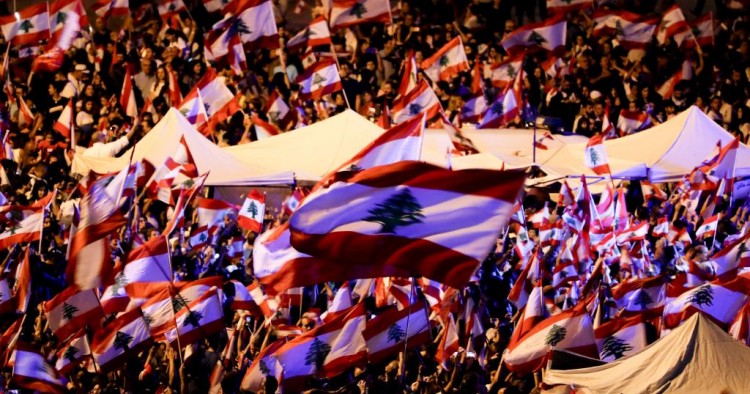Lebanon’s nationwide protests are now in their third week. The uprising scored its first victory last week in getting the sitting government to resign, but President Michel Aoun is taking his time in initiating the process for forming a new government. Protestors are demanding quick movement toward a new government of independent technocrats.
Banks opened late last week and weathered the first wave of economic uncertainty, although with significant constraints on the movement of capital. The third week of economic paralysis in the country is also hitting small and medium-sized enterprises very hard, and waves of painful layoffs and bankruptcies are in the offing. It is not clear how long the precarious economic and banking situation can maintain this slow decline, before it switches into a more dangerous free fall.
The Aounist movement led by the president and Foreign Minister Gebran Bassil is loathe to form a government that does not include Bassil, and Hezbollah still appears to back him as its main future ally in the Christian community. But a return of Bassil will mean the return of other political figures from other factions, and will run exactly counter to protestors’ demands. So the country appears to be in another political logjam it can ill afford, particularly as the economy goes over a cliff.
In a very ill advised move late last week, the White House froze U.S. military aid to Lebanon, including a package worth $105 million. And this at a time when the Lebanese public had just risen up against corruption in the Lebanese government and indirectly against Hezbollah’s role in dominating the government; and at a time when the Lebanese Army played a critical role in resisting pressure from politicians and Hezbollah to crush the protests, instead moving to protect them. The decision was made by the National Security Council, apparently without the knowledge of the State Department, Defense Department, or Congress, which had previously approved the military aid. We will see in the days ahead if this ill-advised move will be walked back.
Now is a time to stand with the people of Lebanon, and to maintain support for the country’s constitutional institutions, as the public tries to push through a political transition toward more independent, clean, and effective governance.
Paul Salem is the president of MEI.
Photo by PATRICK BAZ/AFP via Getty Images
The Middle East Institute (MEI) is an independent, non-partisan, non-for-profit, educational organization. It does not engage in advocacy and its scholars’ opinions are their own. MEI welcomes financial donations, but retains sole editorial control over its work and its publications reflect only the authors’ views. For a listing of MEI donors, please click here.













